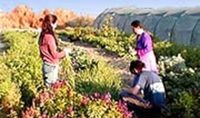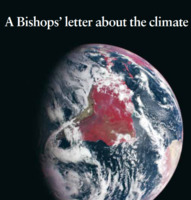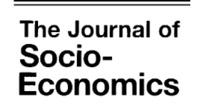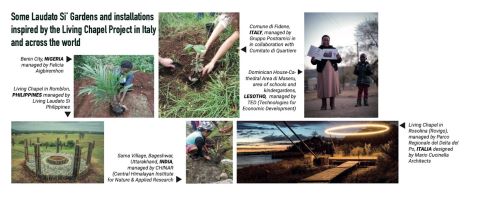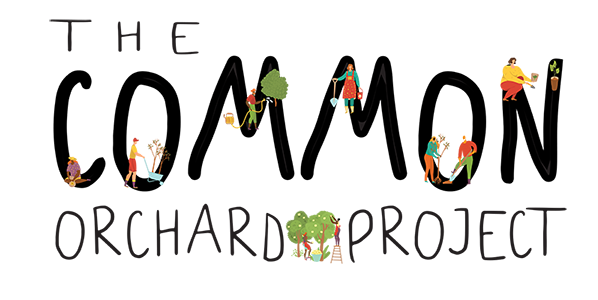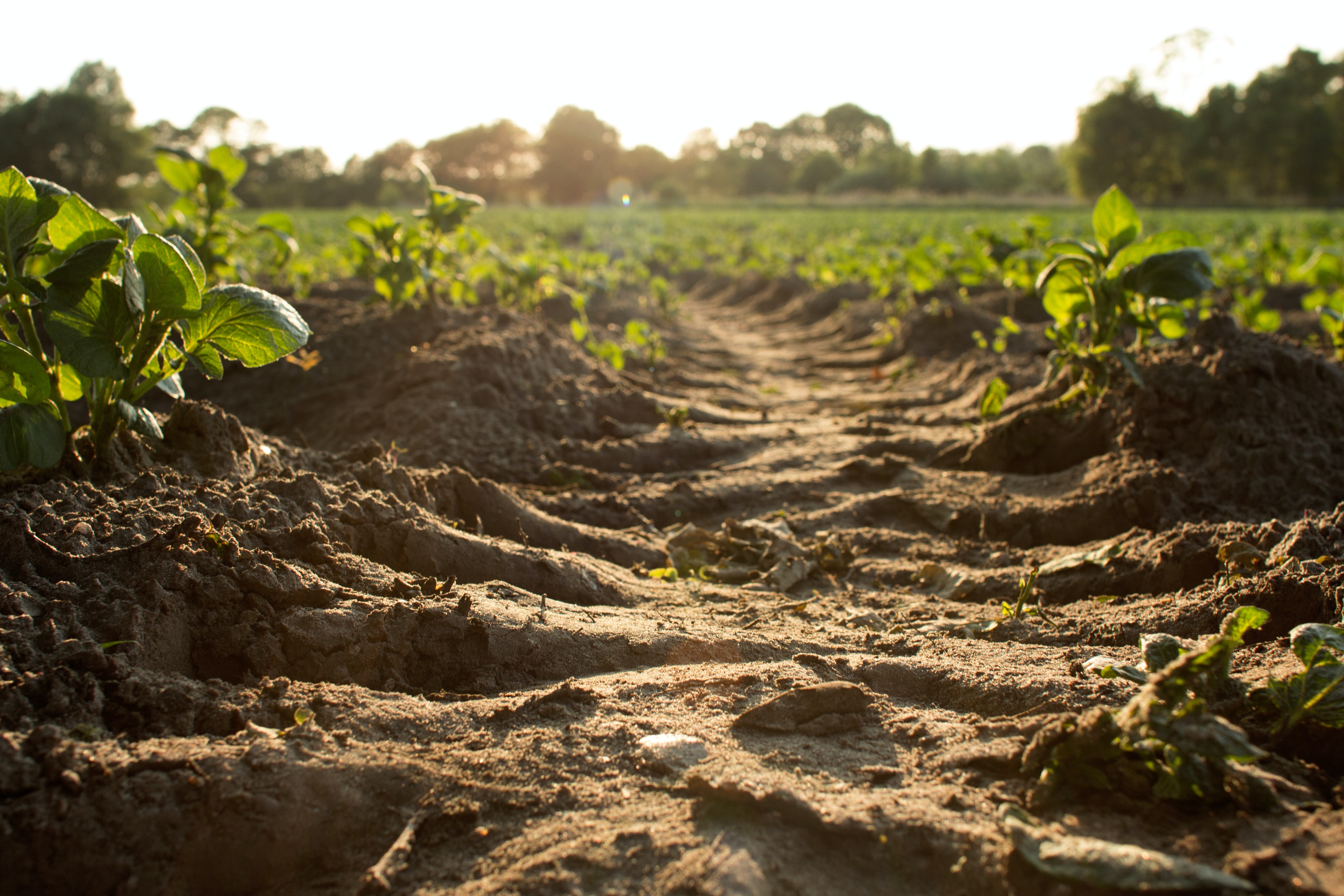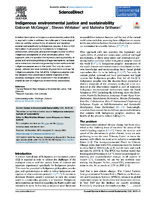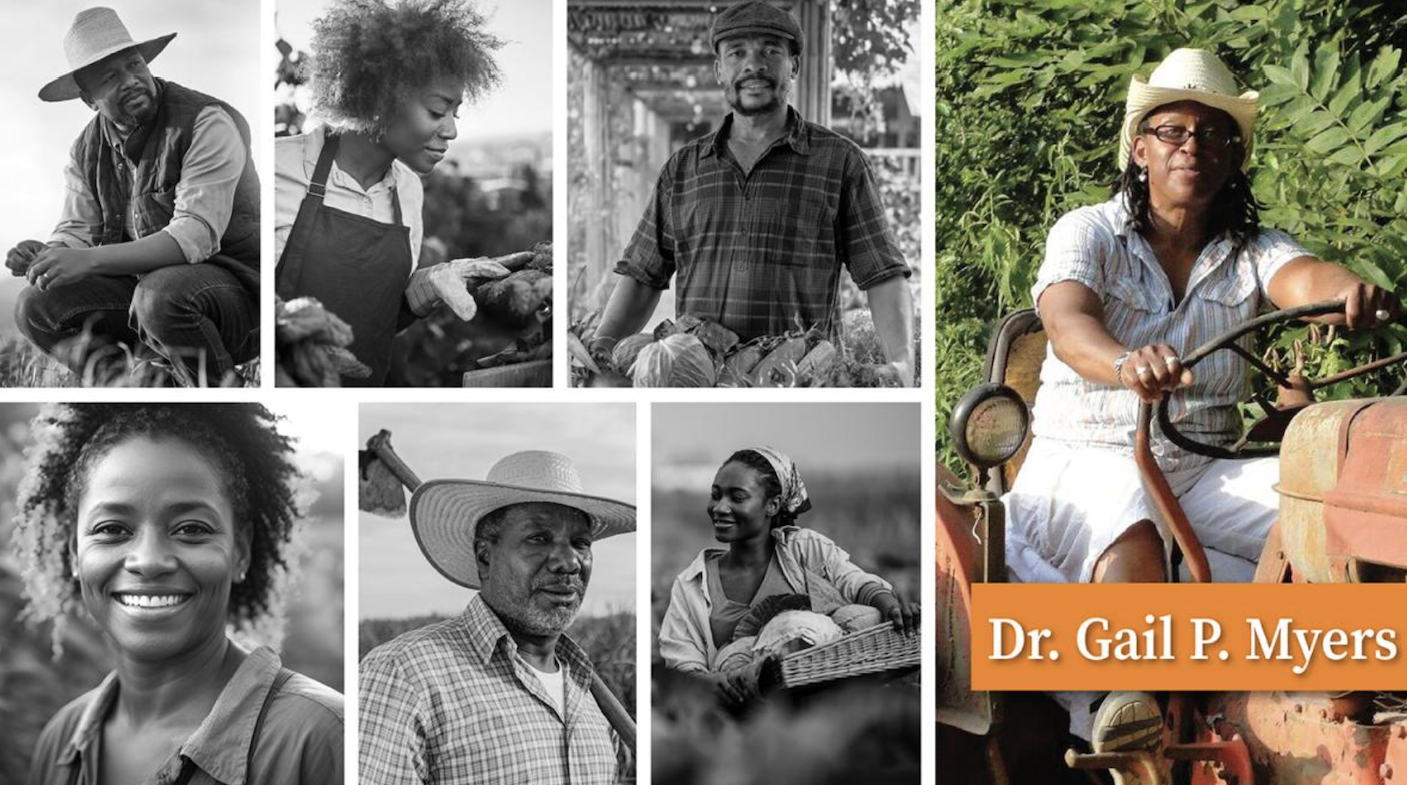Search
60 items
-
Engaged Organizations: Catholic Association of Diocesan Ecumenical and Interreligious Officers
The following is an excerpt from the Catholic Association of Diocean Ecumenical and Interreligous Officers' call to care for creation on their website:
"Catholics now realize that the environment is equally as important as the social issues that have been given attention in the Church and that in fact, certain of these issues are tied inextricably to our care of the earth or lack thereof. Can even one individual live without clean air, water, or food? Can any life be protected without concern for the basic systems and networks required to sustain life? If we “teach a man to fish” but the water is so polluted that fish are poisoned or if overfishing causes them to become extinct, what then?
Catholics in past centuries were not concerned about air, water, soil and climate for the simple reason that these life systems were not endangered. Clergy and faithful had no need to be worried that the water, wheat, or grapes required for our sacramental life might be dangerously polluted or ruined by climate extremes. Current threats to creation are a sign of our times." -
Baha'i Faith Statement on the Environment
The Interfaith Center for Sustainable Development posted a Baha'i faith statement, from the Baha'i Office of the Environment, on their website. Below is the introduction within the statement:
"In this age of transition toward a world society, protection of the environment and conservation of the earth’s resources represent an enormously complex challenge. The rapid progress in science and technology that has united the world physically has also greatly accelerated destruction of the biological diversity and rich natural heritage with which the planet has been endowed. Material civilization, driven by the dogmas of consumerism and aggressive individualism and disoriented by the weakening of moral standards and spiritual values, has been carried to excess.
Only a comprehensive vision of a global society, supported by universal values and principles, can inspire individuals to take responsibility for the long-term care and protection of the natural environment. Baha’is find such a world-embracing vision and system of values in the teachings of Baha’u’llah, which herald an era of planetary justice, prosperity, and unity. " -
Judaism Ecology
Interfaith Center for Sustainable Development posted a statement of Judaism ecology, based on the Windsor Statements, on their website. Key points include a warning with regard to altering creation, wasteful destruction, and the urgency for preservation. -
North American Pollinator Protection Campaign (NAPPC) - Brochure on Christianity and Pollinators
Various Christian groups in the United States (North American Pollinator Protection Campaign) have created this leaflet that discusses the importance of protecting endangered pollinating species in urban areas. The concluding section focuses on actions that congregations, and specifically youth groups can take to assist pollinators. -
Climate Change and the Common Good: A Statement of the Problem and the Demand for Transformative Solutions
The Pontifical Academy of Social Sciences prepared the following statement on climate change. It covers a wide range of associated sustainability issues. Various suggestions for societal interventions are also included within the statement. -
Global Climate Change A Plea for Dialogue Prudence and the Common Good
A Statement of the United States Conference of Catholic Bishops was issued on June 15, 2001. This document covers a multitude of current environmental problems and the resulting negative impact on populations around the world - especially with regard to indigent populations. It stressed the connectivity of human behavior and it's impact on the planet. -
Lenten Call for ‘Carbon Fast’
This circular Lenten Call for ‘Carbon Fast’, addressed to the Bishops of the Churches in South India, was provided on February 8, 2017 in Chennai, India, at the Church of South India Synod Secretariat. The circular emphasizes the desecration of the Earth as sinful. However, the call for a Carbon Fast can be considered one way to repent. -
A Bishops’ Letter about the Climate
Below is a section of the introduction from A Bishops’ Letter about the Climate, which covers a multitude of critical environmental issues, from the 2014 Bishops' conference:
"We have lived with reports and forecasts of climate change since the 1980s. Our climate is the result of the interaction of complex systems and there is often a great distance between cause and effect in terms of both space and time. There are uncertainties and a lack of clarity. However, the knowledge we possess today does not allow us to postpone until tomorrow
what needs to be done now. Our human climate impact must decrease for the sake of the earth, for the sake of the world that God so loves that God gave us Jesus Christ." -
Ancient Judean Dates
A date tree planted in Ketura, Israel from 2000 year old seeds found at an archeological site in the Judean wilderness has finally bore fruit earlier this month (September 2020). The harvest was hailed a modern miracle of science. “In these troubled times of climate change, pollution and species dying out at alarming rates, to bring something back to life from dormancy is so symbolic,”... Date palms were praised in the Bible and the Quran, and became symbols of beauty, precious shade and succulent plenty. -
What Karl Marx has to say about today's environmental problems
Ted Benton, a Professor of Sociology at the University of Essex, writes about how Marx's theories can be applied to modern environmental issues such as climate change. He talks about how Marx's ideas about capitalism relate to current exploitation of nature, and specifically about soil degradation which was an issue during the 1860s when Marx was alive. He also includes problematic parts of Marx's attitudes towards nature, such as his praise of increased productivity of land that may have inspired Stalin. -
Himalayan Institute
Founded in 1969 by the great teacher and humanitarian, Swami Rama, the Himalayan Institute acts on the basis of yoga tradition and Eastern spirituality. Through the living connection to an ancient wisdom tradition of the Himalayan Masters, and the guidance of spiritual head Pandit Rajmani Tigunait, the Himalayan Institute seeks to serve communities across the globe of those who seek to live their spiritual values. The institute provides resources for anyone seeking spiritual wellness such as yoga and meditation training, local retreats and seminars, and domestic and international excursions, frequently taking the form of a trek through the Himalayas. The Himalayan Institute strives for sustainable living in partnership with the community in Honesdale and also in their projects in India and Africa- providing sustainable living, jobs, and farming in several different communities. -
Religion and animal welfare: Evidence from voting data
This article, written by Julio Videras, works to analyze the factors that contributed to a 2002 ban on farming practices in Florida that were deemed cruel to pigs. Not only is religion taken into account (specifically Catholicism and Evangelical denominations), but political and socioeconomic factors are also considered. Videras argues that political affiliation and socioeconomic factors play more of a role in people's opinion of the ban than religious factors do. -
How to Green your Parish
This article is about the importance of parishes to participate in environmentally sustainable actions based on Pope Francis’s Laudato Si’. It encourages parishes to strive to become more eco-friendly by taking work together as a community and focusing on change one issue at a time. The article focuses on three main areas: reducing the parishes greenhouse gas, sustaining food and land use, and preserving water. -
Federation of Zoroastrian Associations of North America (FEZANA)
FEZANA is a non-profit religious group registered in the state of Illinois and formed to function as the coordinating organization for Zoroastrian Associations of North America. It serves as the coordinating body for 27 Zoroastrian Associations in the United States and Canada.
On this website, you can learn more about the community of FEZANA , Zoroastrianism, their sustainability reports and other social activities.
-
The FEZANA Talks #9: Food Sustainability, Creativity & Conservation During COVID-19
COVID has changed the way we eat, cook and live in many ways — good and bad. This discussion hosted by FEZANA (the Federation of Zoroastrian Associations of North America) focuses on the impact of the pandemic on the food supply chain, and how it affected the availability of the basics, leading people to get more creative in the kitchen. Everything from making our own bread to using leftovers to create new unexpected meals, has allowed people to ramp up their cooking skills, rely on sustainability and be more conscious of food wastage. Historically resembling the ways of our ancestors. -
Laudato Si’ Gardens in Schools and Institutions across Italy
The Living Chapel is expanding outreach for Laudato Si' Gardens to spaces managed by schools, governmental and non-governmental organizations encouraging participation in caring for our common home by supplying indigenous young plant species to various regions. This project distributes young plants throughout Italy for the recovery of degraded areas.
Outside Italy, Laudato Si’ Gardens shared a Four Element Package that symbolizes Air, Earth, Water, and Fire. -
The Living Chapel
The Living Chapel holds the sacrality of life at its core. It embodies a call to hope: a hope for a world in which the sacrality of life is truly recognized and felt by every being to give rise to a kinder, more compassionate, more peaceful life.
In partnership with the Food and Agriculture Organization of the United Nations, Plant for the Planet, and the Global Catholic Climate Movement, the Living Chapel will join the UN Environmental Programme's One Trillion Tree Movement, inspiring the public to reconnect with nature and providing a vehicle for intercultural and interfaith collaboration to restore our common home through the creation of Laudato Si' Gardens and Living Sacred Spaces. -
The Common Orchard Project (Incubated by Green Umbrella)
The Common Orchard Project works to install and maintain hundreds of small orchard plantings across Greater Cincinnati and grows “commonly held” resources by educating communities on fresh food and urban land management. These common orchards provide increased food access, tree canopy, walkable greenspace and community building in neighborhoods that have experienced disinvestment. Founded in 2017 by Chris Smyth, the effort has planted 12 orchards across Cincinnati and two in Cleveland, with plans to install 50 more by 2024.
In 2021, The Common Orchard Project was been adopted by Green Umbrella as an "accelerator project." Chris Smyth continues to serve as the director of the project as it incubates within Green Umbrella and will plant more orchards each year thanks to Giving Grove’s support. Learn more about the project at www.commonorchard.com. -
The Giving Grove
The mission of the Giving Grove is to provide healthy calories, strengthen community and improve the urban environment through a nationwide network of sustainable little orchards to dramatically increase access to healthy food.
The Giving Grove envisions:
- thousands of little orchards in food insecure urban neighborhoods across the nation;
- a system of local food production that feeds people for decades;
- a national network of neighborhood stewards trained in holistic methods for growing fruit; and
- urban neighborhoods transformed by their own work and generosity. -
A Bahá'í Compilation on Soil and Earth
This compilation gathers a selection of references to soil, earth and minerals in the Bahá'í Writings, including the ways these are referred to both symbolically and literally.
Contents:
Mineral Kingdom
Agriculture
Metaphorical Uses
Humility
Earth as Tomb
Rain on Soil
Fertile versus Barren
Cultivation - Divine Education -
Indigenous environmental justice and sustainability
Current Opinion in Environmental Sustainability
Volume 43, April 2020, Pages 35-40 -
Interfaith Rainforest Initiative (IRI) Campaign Videos
The Interfaith Rainforest Initiative (IRI) creates artistic and well-produced videos that accompany their programs on climate change education and awareness-raising in branch offices around the world.
These videos are great resources for those looking for multimedia inspirations that amplify sustainability communications efforts. -
ECHO Global Farm
ECHO introduces sustainable plants, climate-resilient techniques, and technologies to farmers around the world who are struggling to feed their families.
Through partnering with local NGOs, farmers, volunteers, and missionaries, ECHO is able to be efficient with their resources in providing aid where it's needed the most.
Empty bellies and empty hearts lead to pain and suffering for individuals, families, and communities across the world. ECHO believes that as active participants in the Great Commission and stewards of great agricultural knowledge, it is their duty to grow and make disciples. -
EPN Breakfast: Recognition of historical injustices in agriculture and the importance of environmental experiences for racial healing
"This program, on the 8th annual National Day of Racial Healing, addresses land access and explores the human connection to the environment through farming, gardening and other active outdoor activities and the ability for agricultural experiences and acknowledgement of historical injustices to serve as healing towards racial equity. The National Day of Racial Healing, part of the W.K. Kellogg Foundation’s Truth, Racial, Healing & Transformation efforts, is a time to contemplate our shared values and create the blueprint together for #HowWeHeal from the effects of racism. Launched on Jan. 17, 2017, National Day of Racial Healing is an opportunity to bring ALL people together in their common humanity and inspire collective action to create a more just and equitable world."
1/16/2024, 7:15-9:30 a.m.
Nationwide and Ohio Farm Bureau 4H Center
Columbus, OH
$25 for non-students, $5 for students, free for virtual participants -
How to Decolonize Your Thanksgiving Dinner
"If your favorite meats, legumes, vegetables, and fruits could talk to you this Thanksgiving, they would probably tell you all about the historical traumas that they've endured as they traveled and evolved through the Old World, New World, and finally as components in your favorite dish.
Welcome to the world of decolonial cuisine, a culinary movement with the goal of getting people with indigenous roots to honor their heritage through their dietary choices. In addition, the movement aims to simply allow people to become more conscious of where their food comes from and how it got there."



